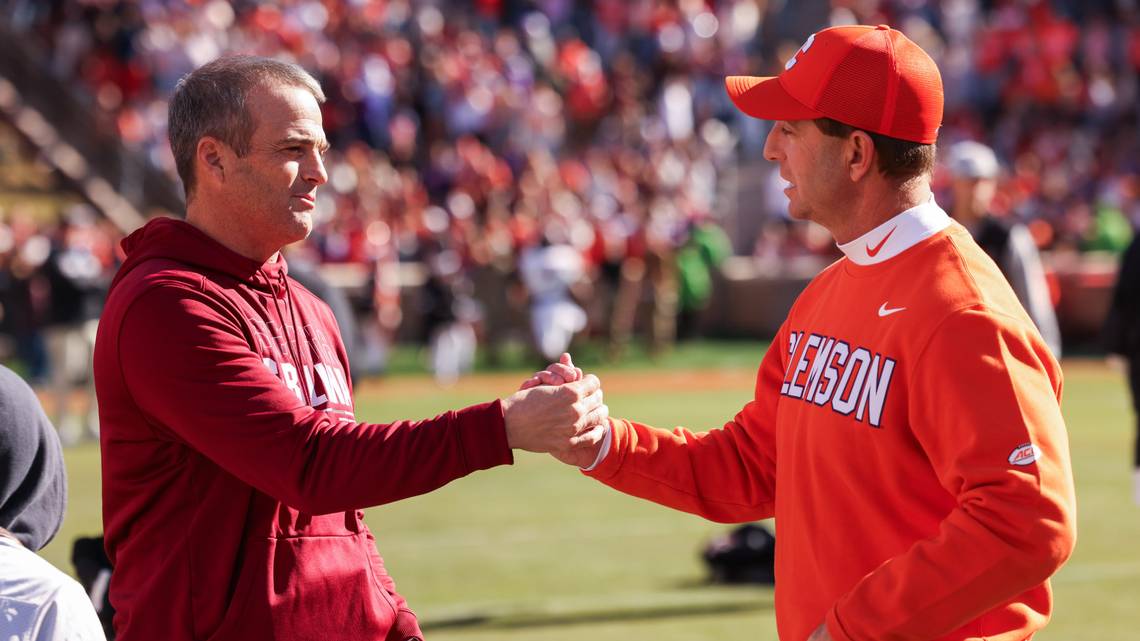The Significance of the Palmetto Bowl
The South Carolina-Clemson football rivalry, known as the Palmetto Bowl, is one of the most storied in college football. However, recent changes and uncertainties in Southeastern Conference (SEC) scheduling have raised questions about the future of this annual matchup. This article explores the implications of the evolving SEC schedule on the South Carolina-Clemson rivalry, examining the potential challenges and the commitment of both programs to preserving this historic game.
The Palmetto Bowl, contested annually between the University of South Carolina Gamecocks and the Clemson University Tigers, is a deeply rooted tradition in South Carolina. Dating back to 1896, the rivalry has been played every year since 1909, with the exception of a few interruptions. The game is typically held on the Saturday following Thanksgiving, serving as a climactic end to the regular season for both teams.
The rivalry is not just a football game; it’s a cultural event that divides households and communities across the state. The outcome often influences recruiting battles, state bragging rights, and the morale of fan bases. Given its significance, any threat to the continuity of this game is met with concern from both institutions and their supporters.
SEC Scheduling Changes: A New Landscape
The SEC’s expansion to include the University of Texas and the University of Oklahoma has prompted a reevaluation of the conference’s football scheduling format. In 2025, the SEC will maintain its current eight-game conference schedule, with teams playing the same opponents as in 2024 but with reversed home and away sites. However, discussions are ongoing about transitioning to a nine-game conference schedule in the near future.
The proposed nine-game schedule would involve each team playing three permanent opponents and six rotating ones. This model aims to preserve traditional rivalries while ensuring a balanced and competitive schedule across the conference. However, it also presents challenges for teams like South Carolina, which have significant non-conference rivalries.
Implications for the South Carolina-Clemson Rivalry
The potential shift to a nine-game SEC schedule raises concerns about the feasibility of maintaining annual non-conference rivalries. For South Carolina, adding an extra conference game would reduce scheduling flexibility, making it more challenging to accommodate the Clemson game. This is particularly significant given that the Gamecocks already face a rigorous SEC schedule.
Despite these challenges, both South Carolina and Clemson have expressed a strong commitment to preserving the Palmetto Bowl. In 2023, the athletic directors of both schools signed a contract to continue the rivalry through at least 2025, with games scheduled in Clemson and Columbia.
South Carolina head coach Shane Beamer has also emphasized the importance of the rivalry, stating, “I know how important that Clemson game is to the people of our state, and I think it’s great for college football.”
Broader Context: Conference Realignment and Rivalries
The uncertainty surrounding the South Carolina-Clemson game is part of a broader trend in college football, where conference realignments and scheduling changes threaten traditional rivalries. The expansion of conferences and the pursuit of lucrative television contracts have led to the dissolution of some longstanding matchups.
However, the SEC has shown a willingness to preserve key rivalries. The proposed nine-game schedule aims to maintain traditional games while adapting to the new conference landscape. This approach suggests that the SEC values the historical and cultural significance of rivalries like the Palmetto Bowl.
While the evolving SEC scheduling presents challenges, the South Carolina-Clemson rivalry remains a priority for both institutions. The commitment demonstrated through contractual agreements and public statements indicates a shared desire to preserve this historic game. As college football continues to navigate changes, the Palmetto Bowl stands as a testament to the enduring importance of tradition in the sport.



